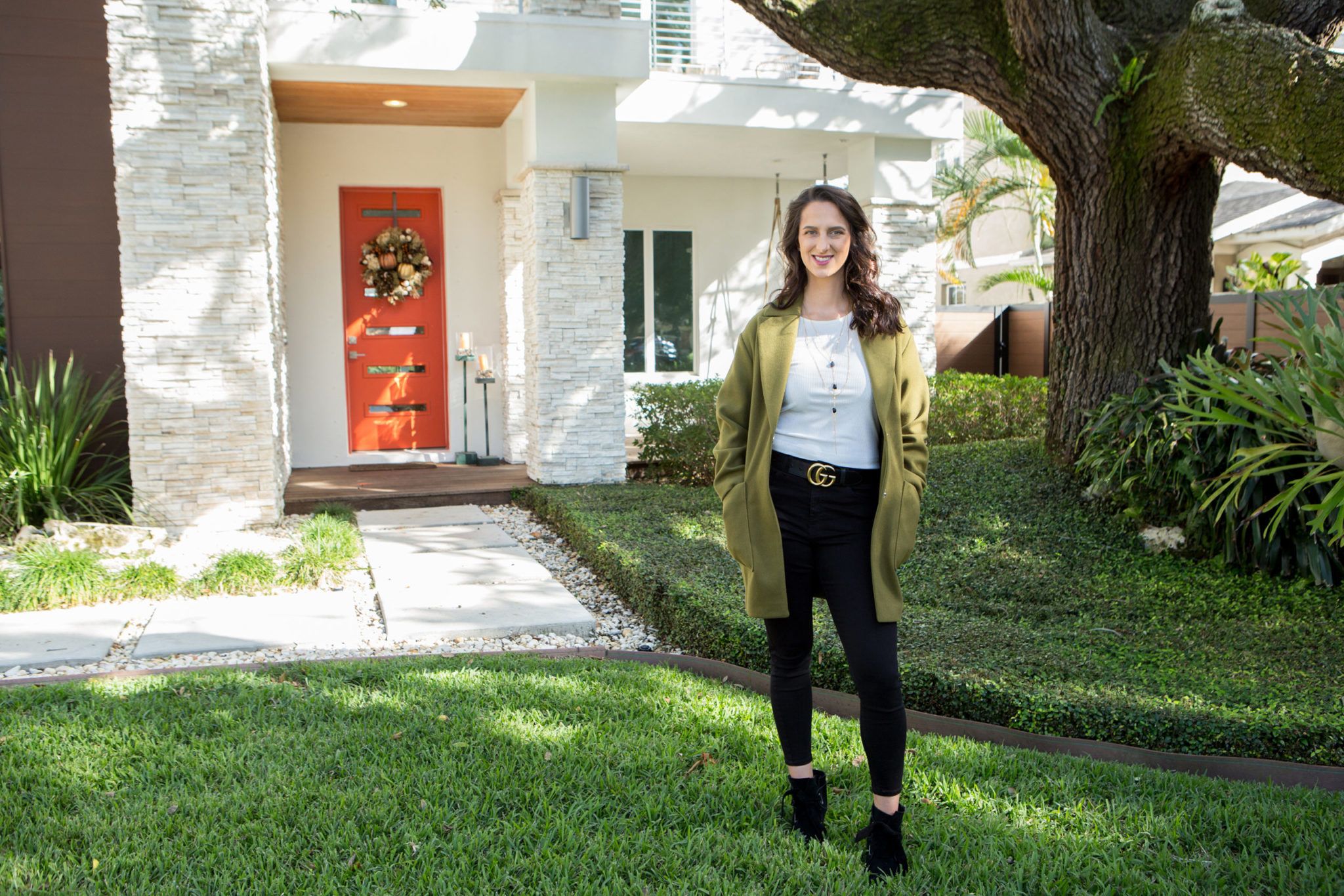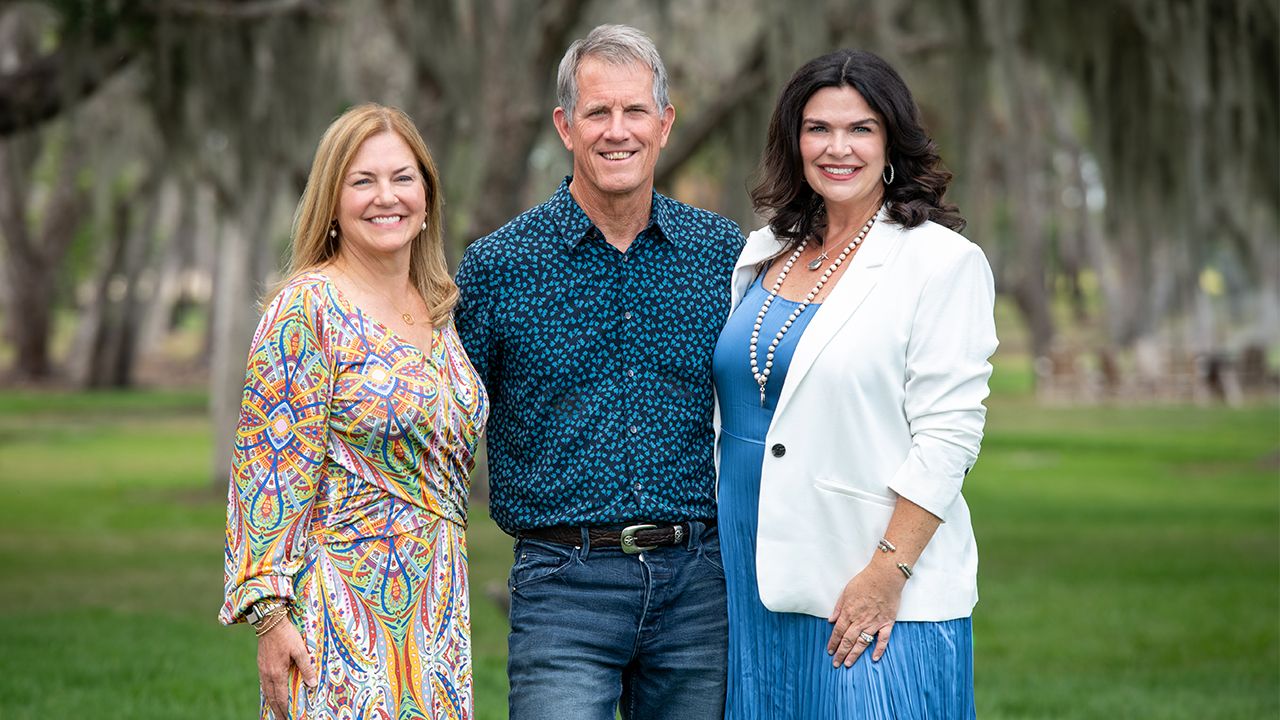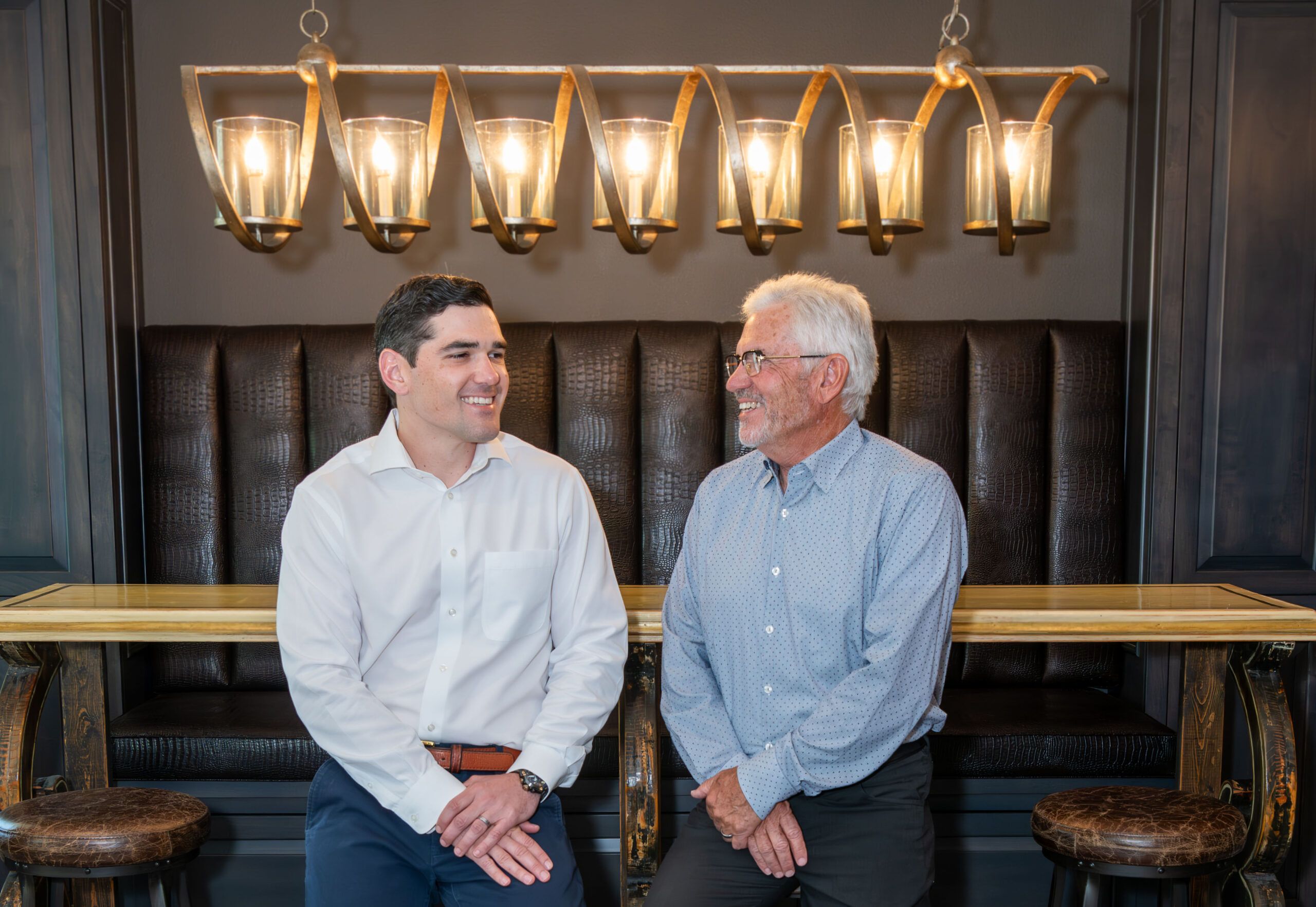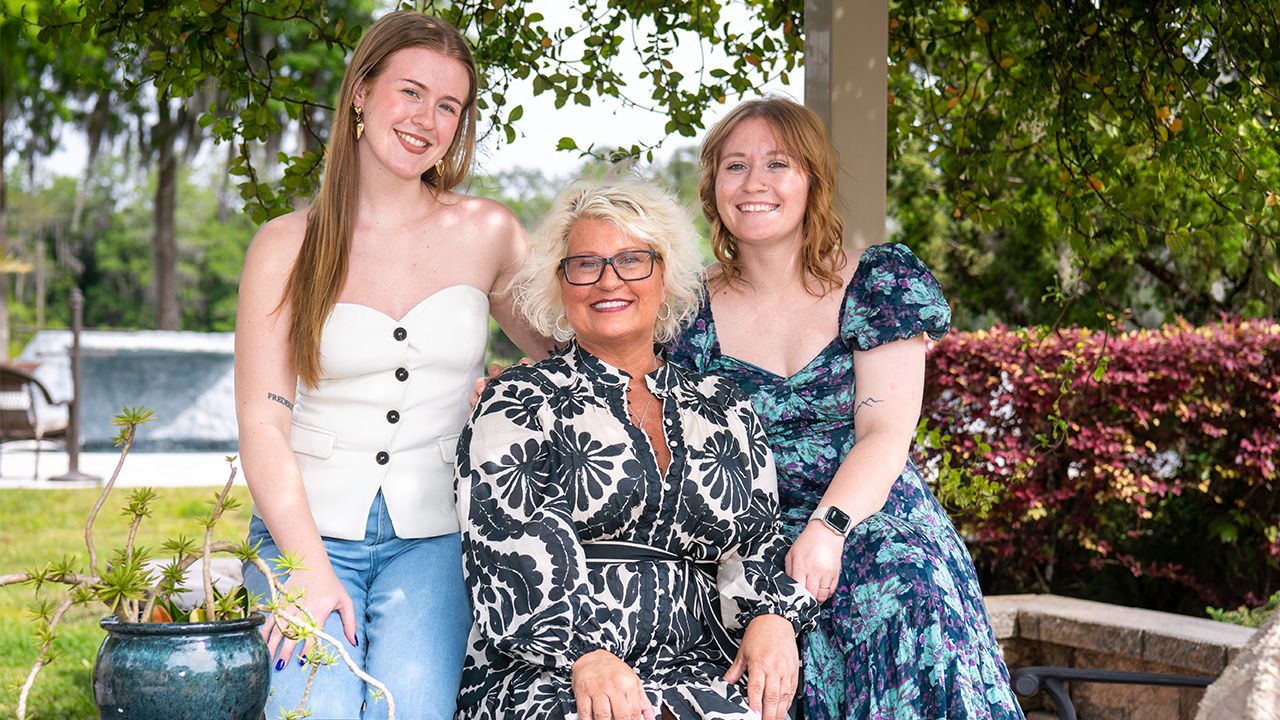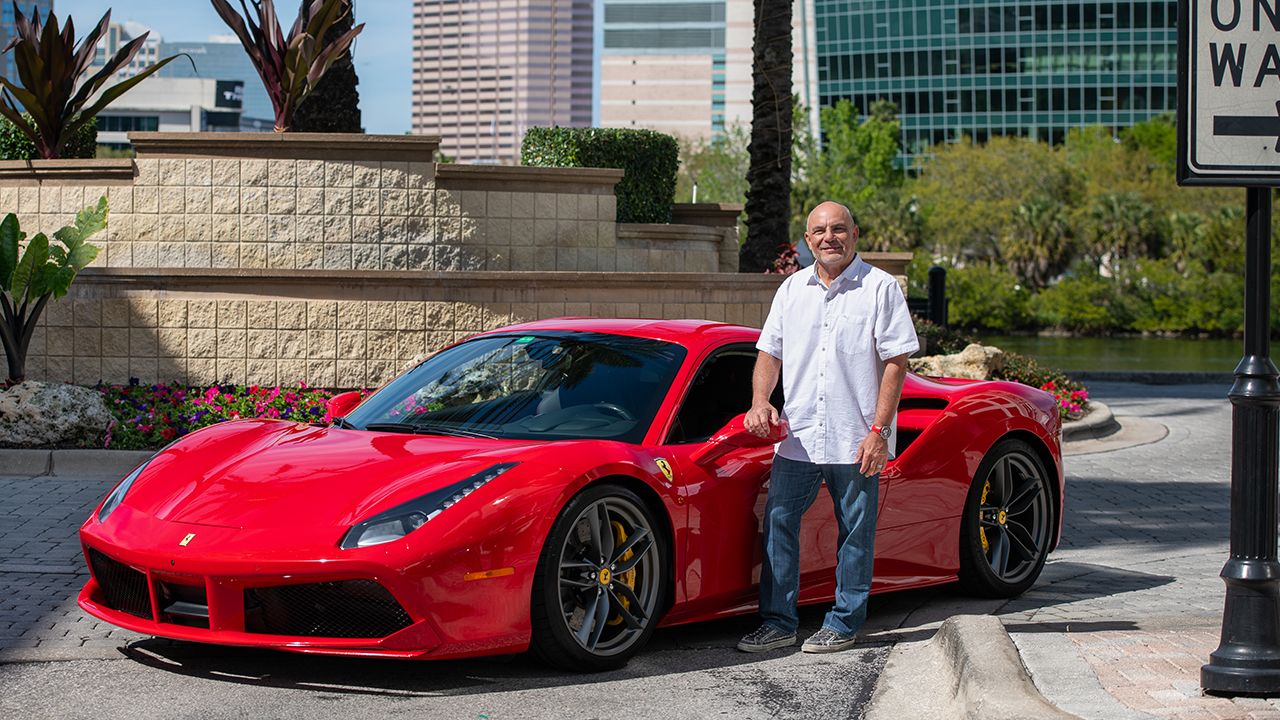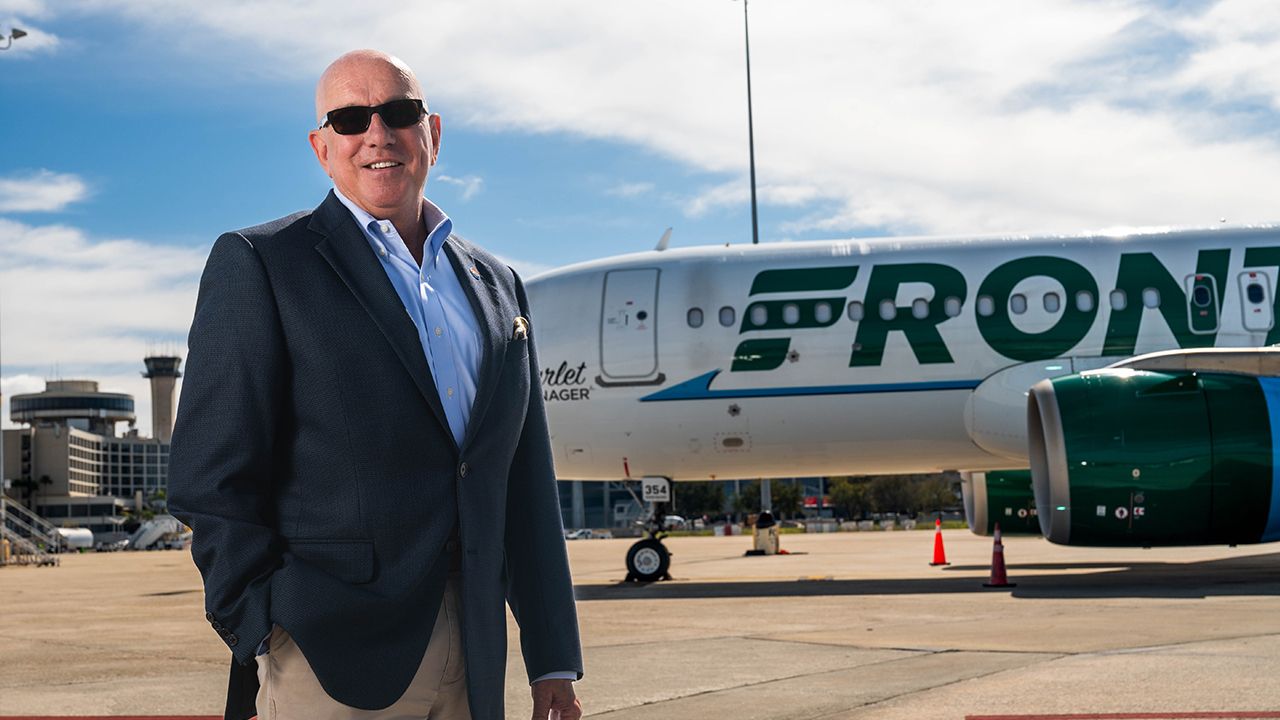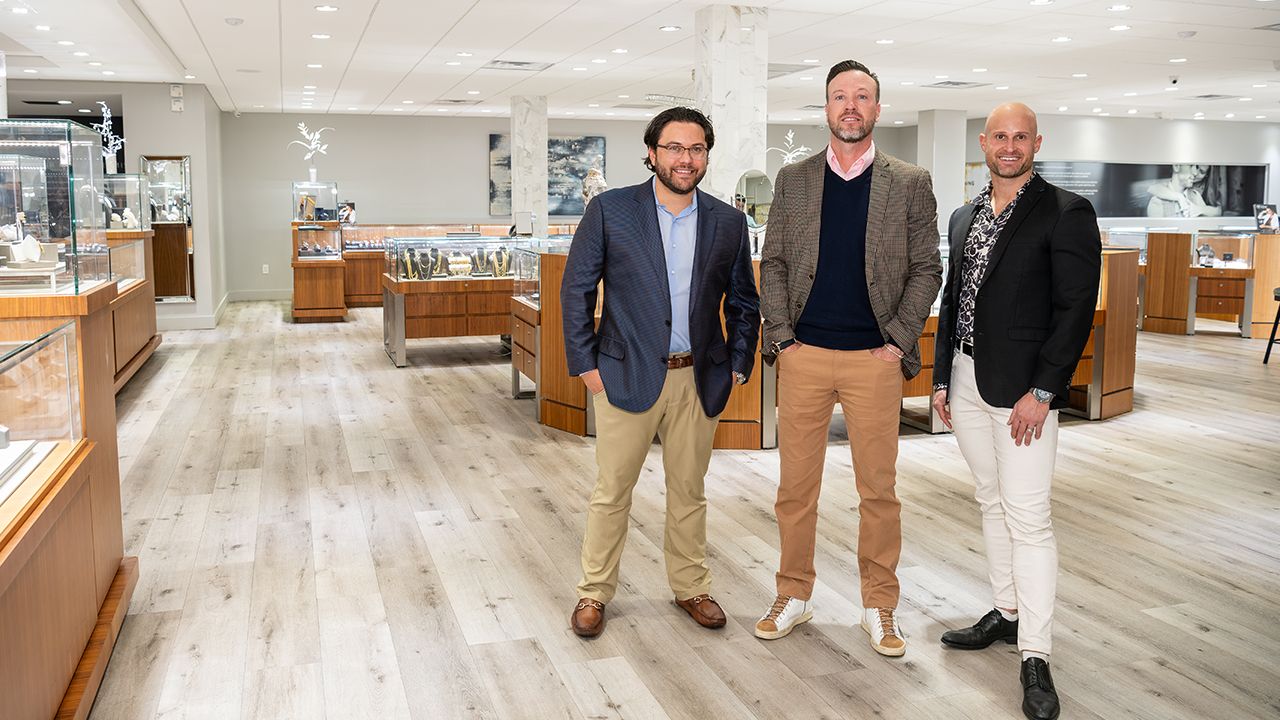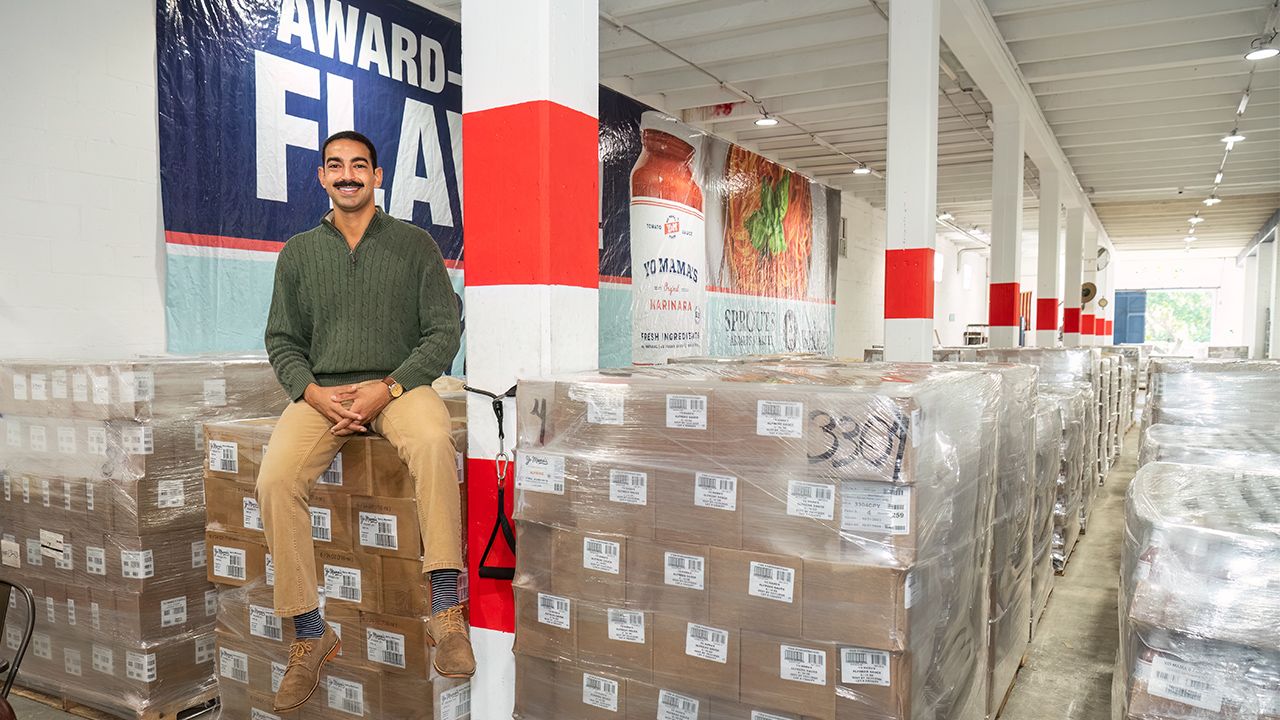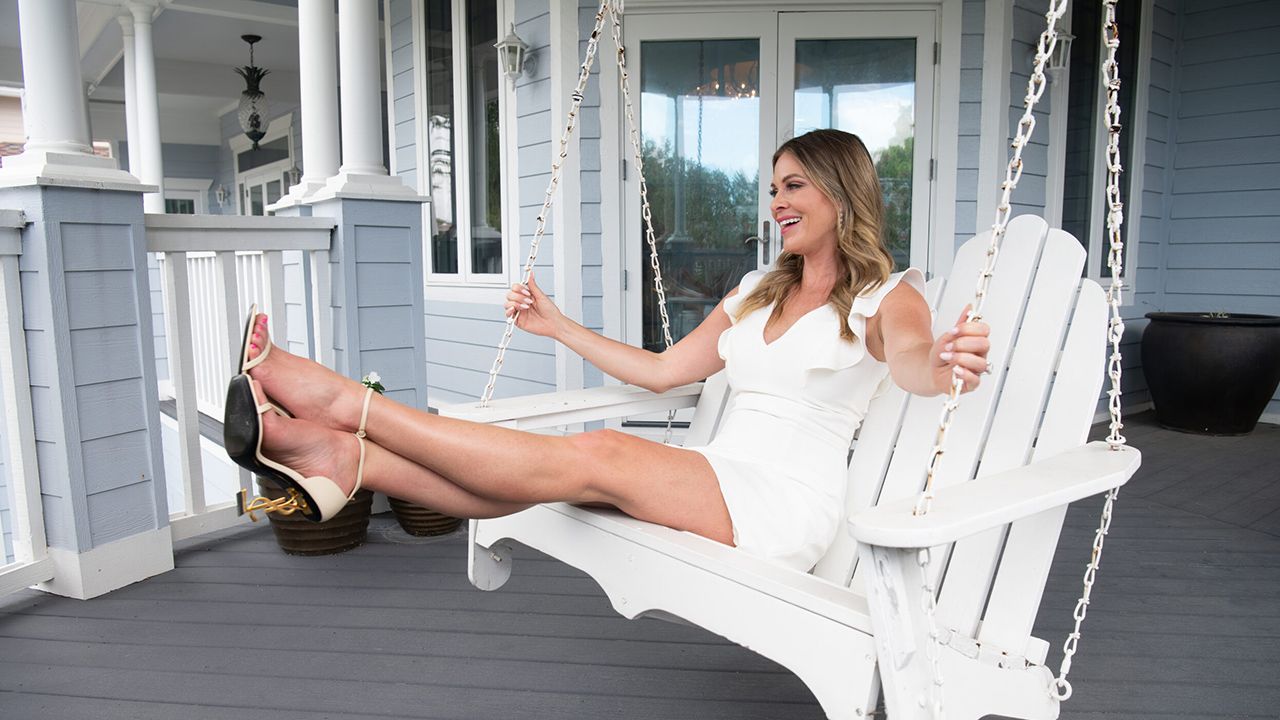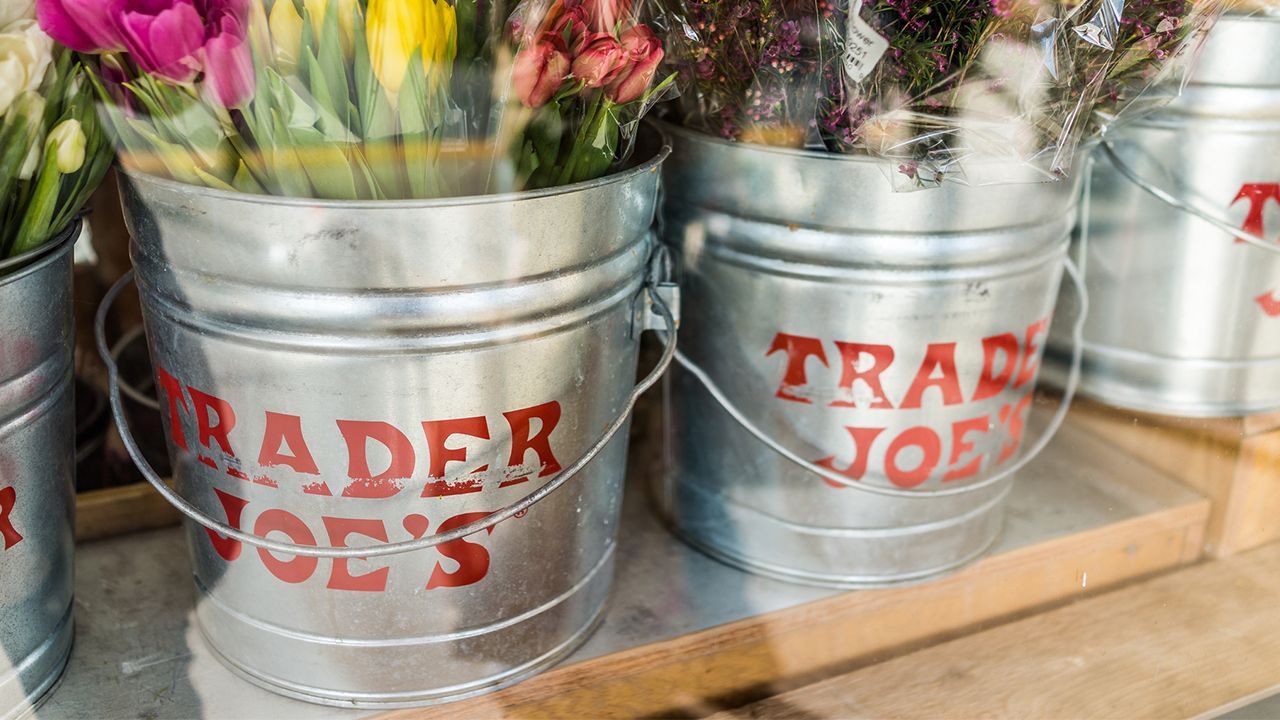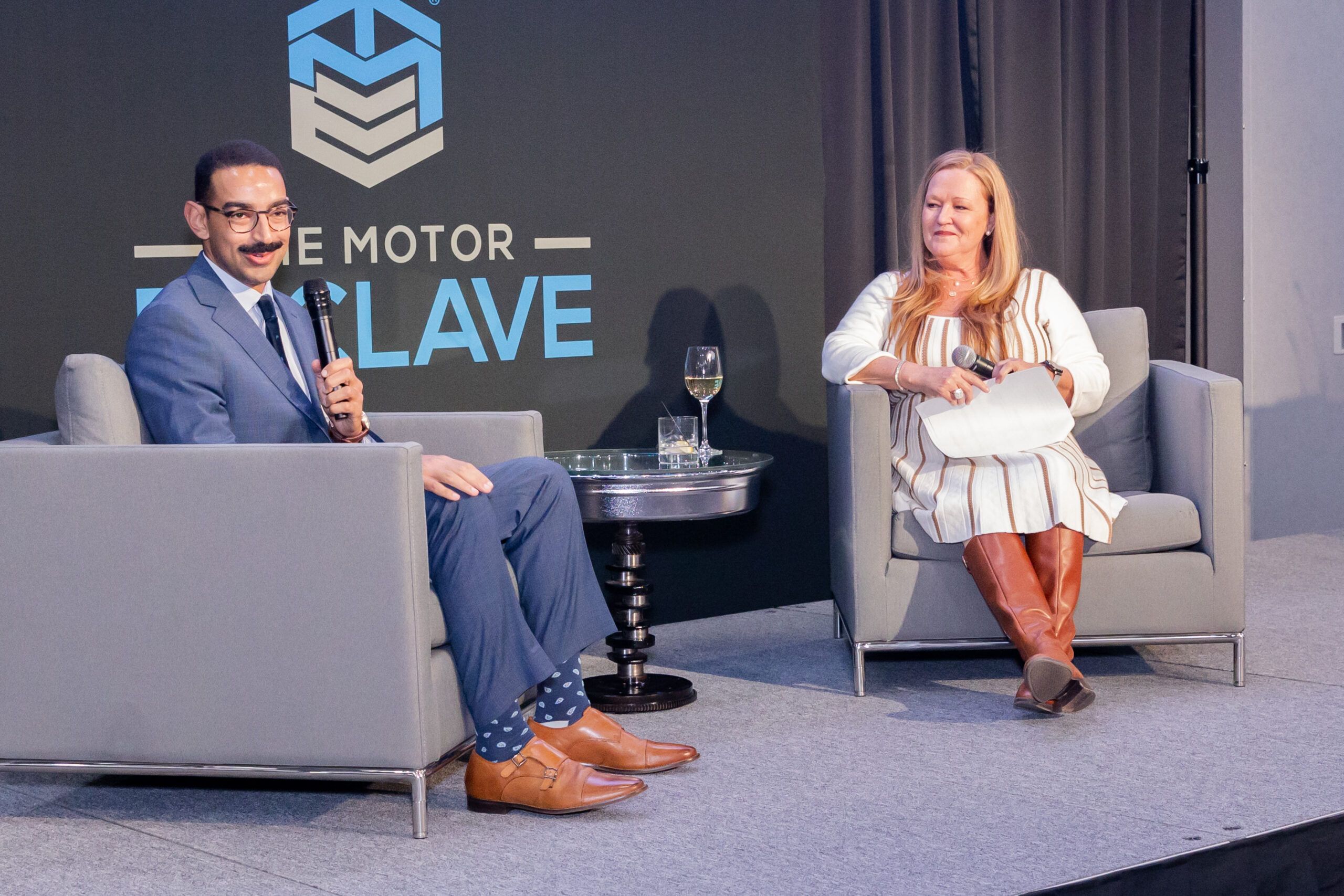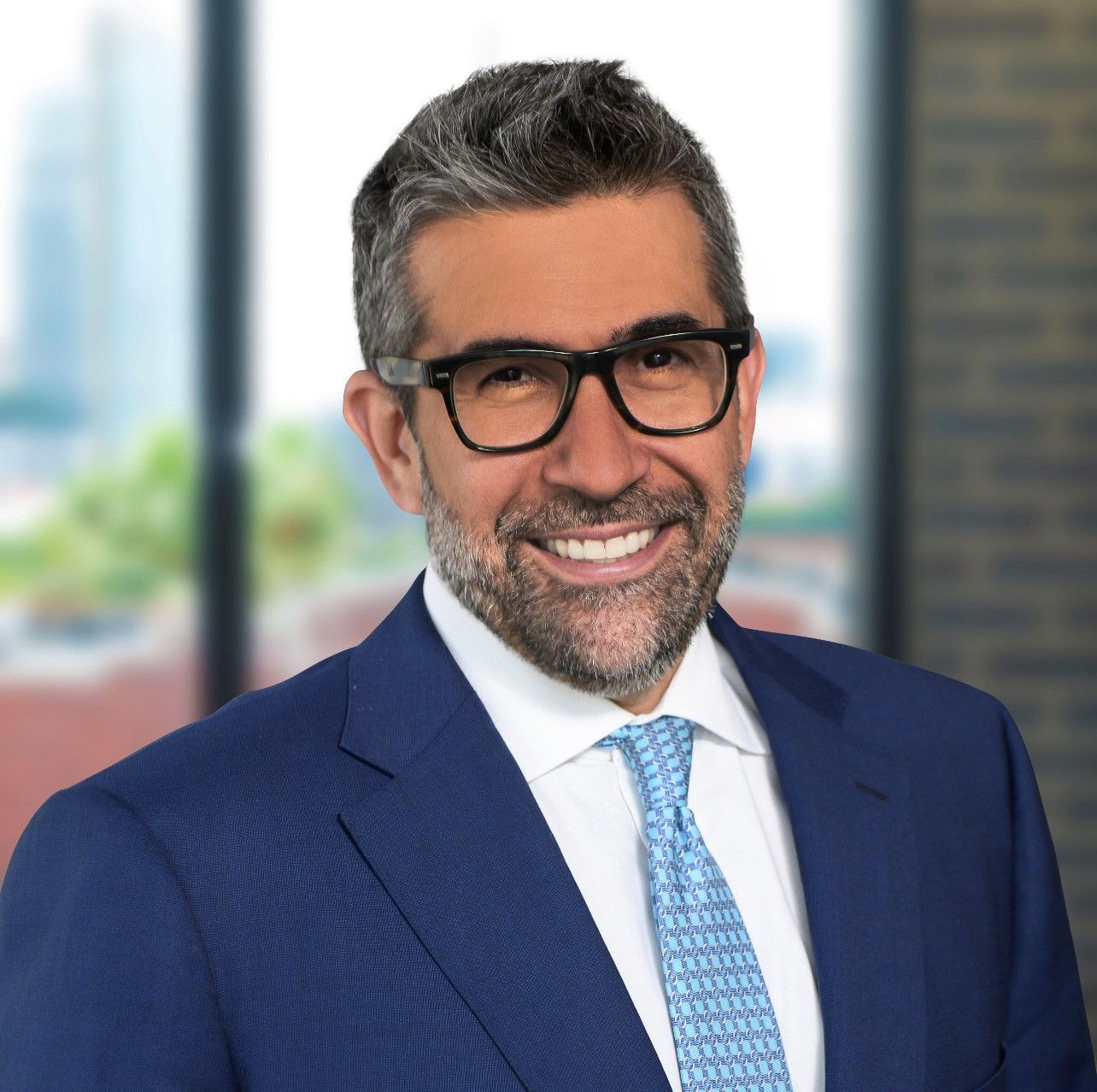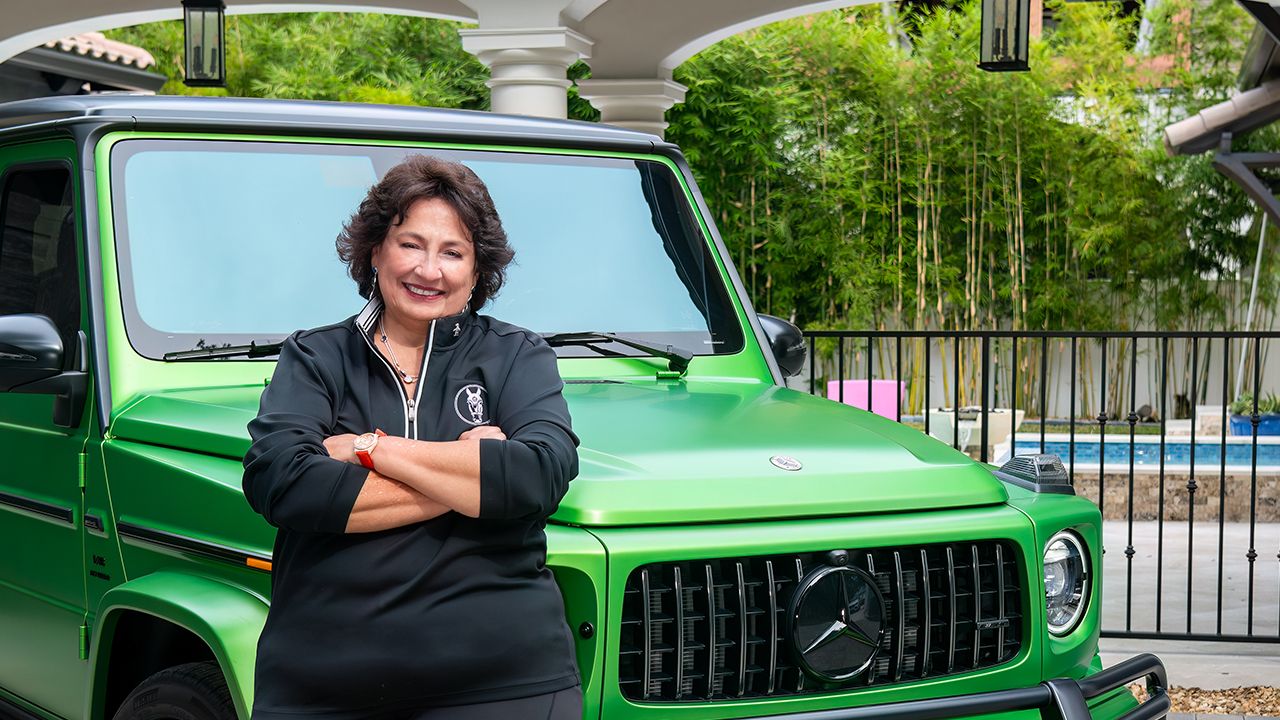It all started as a hobby in her own, small, apartment kitchen.
Jordann Amatea had started the Paleo diet and needed to find something to sate her sweet tooth cravings.
At age 30 she is CEO of Base Culture, based in Clearwater, a massive healthy baked goods empire that stretches to 10,000 retail stores with 40,000 points of distribution, including Whole Foods, Publix, Kroger, Walmart, Sprouts and more.
In 2017, the company started operations in a 44,000-square-foot manufacturing facility and Base Culture’s estimated revenue for 2020 will be in the range of $10 million to $15 million.
As Amatea says, none of her success would be possible if not for her large family and support system.
BIG FAMILY, BIG DREAMS
Amatea is a part of a large family. Born in St. Petersburg, she was the second oldest of nine siblings.
“When I went to college, I never even considered schools out of state. My mom was pregnant with the twins and I knew I wanted to be a part of their lives growing up,” she says. “I’m the first to have children but, in a couple of years, once more of us start having kids the family will get quite large.”
The family, while large, is close. Some of Amatea’s siblings work at Base Culture, and her father Bob Windschauer, she says, played a major role in helping her jumpstart her business and provides guidance, still, as director of the company.
Bob Windschauer was CEO and chairman at SDII Global Corp., in Tampa, collectively for more than 26 years.
Amatea grew up with a passion for gymnastics, despite her tall stature, which can be a complication in the sport.
“I loved every second of it, even though I’m 5-11 and not built for it,” she says with a laugh. “I think that’s truly where I got my drive in life from. The drive to just pursue something I truly feel for. It also gave me a competitive nature to continue to strive for that next goal.”

At the University of South Florida, Amatea studied mass communications, with a focus on public relations, and minored in leadership. She initially wanted to be an event planner, specifically, for weddings.
“After I planned my wedding, I was grateful that didn’t work out,” she says as she laughs.
She did, however, go on to use her degree to do event planning for the corporate world.
“I quickly figured out that it wasn’t really for me but I was 21, at the time, and didn’t know my direction,” she says. “I had moved to South Tampa after I graduated [USF] and joined a CrossFit gym where they were doing a Paleo challenge. I didn’t know what Paleo was, but I wanted to make friends, so I did the challenge.”
A Paleo diet, short for “Paleolithic” aka the “caveman diet,” is a diet that is described as eating as if you were living in the Paleolithic era. The goal is to eat food that is found in nature, meaning nothing processed, and instead eating meats, seeds, nuts, fruits and vegetables.
“For me it wasn’t about losing weight, but about feeling better, sleeping better and having energy,” Amatea says. “It introduced me to what the food world could be and ultimately, why I started my business.”
BASE CULTURE
The founding of Base Culture, as a company, can be attributed to Amatea’s own cravings.
Anyone who has done the Paleo, Keto or some other “restrictive” diets knows, the cravings can be the biggest hurdles to maintain the dietary regimens.
“I initially started baking because I wanted good food in the morning, and at night, and to have my cravings satisfied,” Amatea says. “To be honest, I don’t have a culinary background. So, I did a lot of research to figure out what is, and isn’t, Paleo and how to bake using those ingredients.”
It wasn’t easy. She admits she failed for a good six months. After some trial and error, she learned how to make Base Culture’s brownies and then its banana bread.
Amatea made her own almond flour and almond butter.
“I wanted a texture that was not as finely ground as what was offered in the grocery store,” she says. “I wanted a have a little more crunch to my products.”
The company still uses that same process to this day. The original recipes haven’t changed, from the kitchen, since the beginning.
“Originally we were only making [almond butter] to use as an ingredient to put in our products. Then one day we were like, ‘Let’s put a lid on it and see if it sells,’” she says. “It one of our best sellers.”
The company has three main categories of food—bread, desserts and almond butter.
“I developed products that I wanted and craved, throughout the day and we never deviated from that,” she says.
In 2017, the company was able to take its operations to the next level with a massive manufacturing facility in Clearwater. The move-in process took two and a half years because the company had to do major renovations to bring the building up to code.
“It’s a much different operation than when it was me, baking in my kitchen,” Amatea says. “But I’ve made sure it’s the same quality, the same texture, the same high-level ingredients. We’re not a company that does something just because it’s cheaper. Our products sell because they are really good. People appreciate it for what it is and we’ve maintained that standard throughout our growth.”
With Base Culture’s products starting to receive a following, Amatea was not able to enter certain retail establishments, or ship products out of state, because she was still baking them in her home kitchen.
“That’s when I had lunch with my dad,” she recalls. “He told me, ‘You have a hobby, and you have a business, and you’re doing both poorly.’ ”
While it was hard to hear at the time, she knew he was right.
“I was spending too much time on my hobby and not enough time on the business. I was living in both lives,” she says. “He told me he would support me either way, but I had to decide.”
Her first step was to rent a space in a commercial kitchen. That first day turned into a disaster and her big, supportive, family swooped in to save the day.
Someone had placed an order for 300 muffins for an event. Amatea had bought a dozen eggs.
“It was beyond anything I had ever made and I didn’t bring anywhere near the number of ingredients I needed,” she recalls, and adds, it only got worse. “I didn’t know the keypad code. It was a summer day, in July, and I couldn’t find the AC control. It felt like a sweatbox.”
In shifts her family would swing by, each bringing more eggs.
“We got everything made. I had everything done. I went to leave and I couldn’t find my keys. I had thrown them in the trash, which was now in the dumpster,” she laughs as she tells the story. “I figured if I could make it through that day, I could make it through anything. But it wasn’t without the support of my family every step of the way.”
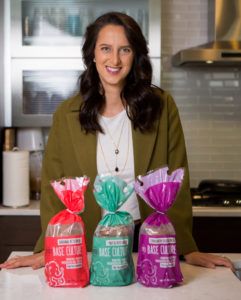 LOAD THE WAGON
LOAD THE WAGON
The company started building its manufacturing facility when only 100 stores were buying from it. It was “a leap of faith,” Amatea says.
“We had gone to a conference and pitched our products to about 90 organizations and companies that were larger grocers in the United States. Everyone wanted to buy it … we just had to figure out how to make it [in large quantities],” she says. “My dad always says, ‘Load the wagon, we’ll figure out how to pull it.’ ”
The company has since expanded its products into major retailers all over the country from Walmart, which was the first retail outlet to sell its products, to Whole Foods, Sprouts and Publix. Whole Foods is the brand’s highest seller.
Base Culture also has “pulled the wagon” through the pandemic.
Base Culture donated products to food shelters and local hospitals including Lakeland Regional, where Amatea’s husband works, Tampa General and St. Joseph’s. And has even gone so far as to send food to hospitals in New York City.
“Some folks up there were hit so hard,” she says. “We do what we can.”
Personally, Amatea and her husband support Everytown for Gun Safety, a nonprofit organization that advocates for gun control and against gun violence.
“There’s an unfortunate recent history of gun violence in the country. It’s just unsettling,” she says. “We do our part, where we can, to hopefully create a safer environment for our girls to grow up.”
MOVING ON
Since launching Base Culture in 2012 Amatea married and has had two children, one during the COVID-19 pandemic in 2020. But she’s found some help.
“This year, we’ve been able to hire a nanny, which allows me to still spend time on the business but also with my daughters. It keeps the stress level down,” she says. “I’m good at multitasking but I feel there’s a lack of satisfaction in that.”
Amatea is now preparing to step out of the CEO role and pass the baton. At the start of 2021 she tapped a new CEO, Heidi Krauss, to step in the role while Amatea maintains the role of founder and is active on Base Culture’s board.
“It’s always been the goal. Grow the company to outgrow yourself,” she says. “Not only from a business standpoint but from a personal one. It’s a great achievement to be able to take some of these hats off and be more involved with my family. It’s a great thing for all involved.” ♦



